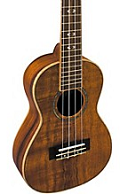December 22, 2017
|
Friday words #100
|
3579 hit(s)
Solstice today. Here in Seattle, it did feel remarkably twilight-y by 4:00pm.
 A new-to-me word came up this week after the Seattle football team, the Seahawks, was slaughtered by the Los Angeles Rams last Sunday. During the post-game commentary, one of the sports analysts said the Seahawks had been boat-raced. I heard this and immediately cranked up ye olde search engine. Turns out that to be boat-raced (or boatraced) is to get behind in a contest and never catch up. The definition in Urban Dictionary also adds that the being boat-raced means not just getting behind early, but being beaten badly.
A new-to-me word came up this week after the Seattle football team, the Seahawks, was slaughtered by the Los Angeles Rams last Sunday. During the post-game commentary, one of the sports analysts said the Seahawks had been boat-raced. I heard this and immediately cranked up ye olde search engine. Turns out that to be boat-raced (or boatraced) is to get behind in a contest and never catch up. The definition in Urban Dictionary also adds that the being boat-raced means not just getting behind early, but being beaten badly.
The UD definition also pinpoints the origin as being from the annual Boat Race, an annual event held between Oxford and Cambridge. In rowing, the boat that gets out ahead has an advantage because they do not have to row against their opponent's (or opponents') wake.
As far as I can tell, the term is still confined to sports; I saw it used in articles about football and hockey. It's not hard to find examples, meaning it's not a particularly exotic term. Still, I was somewhat mollified to see that I was not the only person who wondered what it meant.
 Ok, two quickish notes about unexpected etymology today. The Merriam-Webster blog has a great little story about the origin of the word ukulele, the 4-stringed instrument. Per their story, ukulele is (no surprise) a Hawaiian word. It might mean "gift" (maybe a little surprising) or it might mean "jumping flea" (quite surprising). They have more details, which I encourage you to go read.
Ok, two quickish notes about unexpected etymology today. The Merriam-Webster blog has a great little story about the origin of the word ukulele, the 4-stringed instrument. Per their story, ukulele is (no surprise) a Hawaiian word. It might mean "gift" (maybe a little surprising) or it might mean "jumping flea" (quite surprising). They have more details, which I encourage you to go read.
The second etymology is for the word thug. Take a second and try to guess where this term might have originated. Well, it turns out that it comes from the Hindi word thag, which referred to a cheat or swindler. (Did you guess that the origin was India? I sure wouldn't have.) We've had it in English since the early 1800s. To add to the unexpectedness, I learned this while watching an episode of The Indian Detective, a kind of silly Netflix series about an Indian-Canadian policeman who goes to India and gets on the trail of a crime syndicate. You just never know where you'll encounter an etymological nugget.
Update Some more thoughts on the proximate (as opposed to ultimate) origin of thug.
Like this? Read all the Friday words.
 |
|

 |
|
